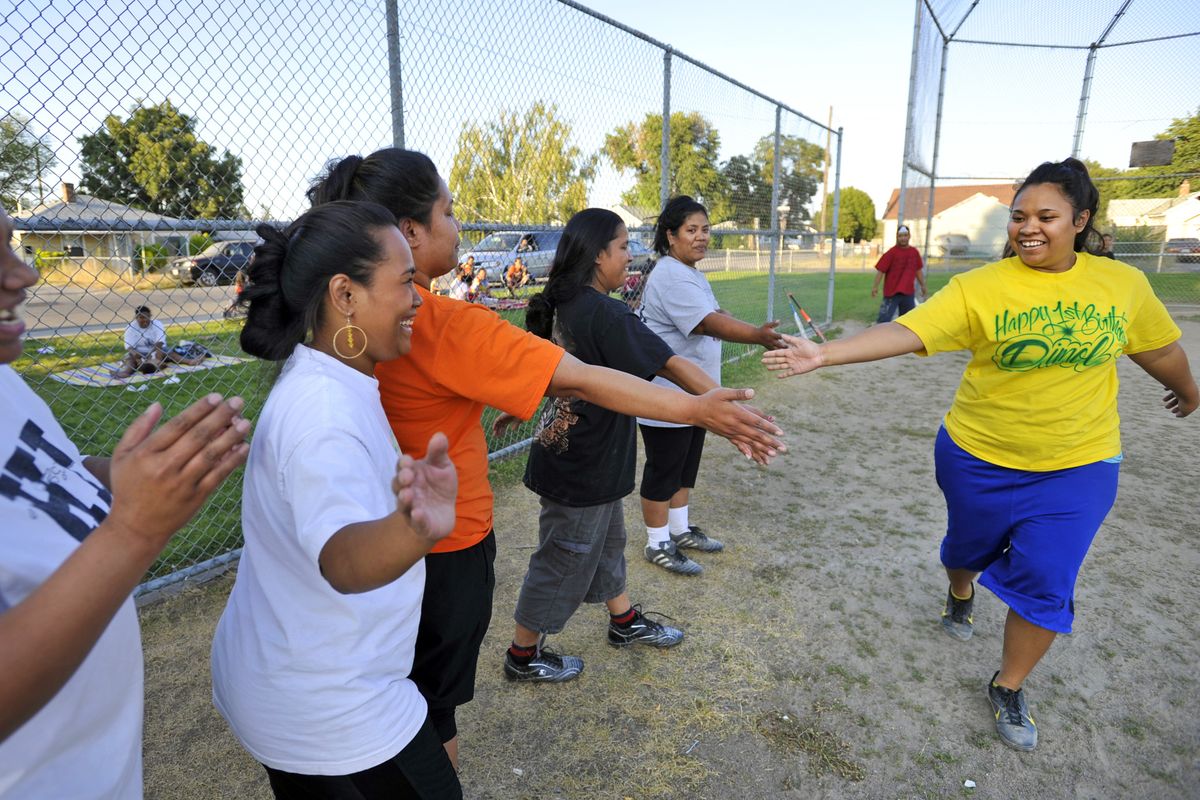Leagues worried about ability to pay higher fees
The Spokane Park Board’s plan to increase fees for its fields has some leagues worried about their ability to meet expenses

It’s going to cost more to play ball in Spokane.
The Spokane Park Board voted last week to raise the per-hour cost of using softball and baseball fields. In the face of significant deficits, the board has adopted a policy aimed at recouping as much of the cost of certain activities as possible.
Even with higher fees, the Spokane Parks and Recreation Department won’t meet that goal, however. Parks Director Leroy Eadie said the new fees will recoup only about 70 percent of the cost of maintaining the fields. Park staff likely will continue to propose modest increases until the department breaks even, he said.
“That’s where we would like to get. We’re not there yet,” Eadie said.
Officials representing area sports leagues say they’ve changed where they practice – often to school fields – to avoid the prices charged for city fields. Philip Helean, executive director of the Spokane Youth Sports Association, said leagues like his that don’t turn away kids who can’t pay to play are especially hurt by the fees.
“We can only afford so much,” he said. “There were a lot of fields sitting empty last spring and that’s because people can’t afford them.”
The city didn’t charge to reserve fields until a few years ago and until then partnered with a couple leagues, including SYSA, to operate its higher profile sports complexes. That changed after the city built its new Dwight Merkel sports complex in northwest Spokane and rehabilitated many other fields.
Next year, the city will charge youth leagues $17 an hour to lease baseball and softball fields at Merkel and $12 at its Southeast Complex and Franklin Park. It will charge $1 an hour at new ball fields that are maintained by leagues and 25 cents an hour at “tier 3” fields still maintained by the city.
That 25 cent fee may seem small, but it can add up for leagues that only had to pay $8 per year to use a field this year. The Spokane Youth Sports Association, for instance, paid less than $500 this year to use 10 “tier 3” fields for about 1,800 hours. Next year, they would pay $777 for the same amount of time. Park officials are proposing to double those rates for 2014.
Park officials decided not to increase the cost of soccer fields at its premiere fields next year. It costs $45 an hour at Merkel for youth soccer games, $20 an hour at Southeast and $10 an hour at Franklin. Adult rates for soccer, softball and baseball are higher than those charged for youth teams.
Despite fee increases, city statistics show that fields at the Dwight Merkel complex were rented slightly more this year than last.
Carl Strong, a city recreation supervisor, said the department is caught between fulfilling its mission of giving citizens opportunities to recreate and paying for the service with a tighter budget.
“We want people recreating,” Strong said. “We want that complex used as much as it can be sustained.”
Dana Richardson, president of Spokane PONY baseball, said the city has done a commendable job maintaining its new fields, but the 2013 fees approved by the board are at the upper limit of acceptable. He said the league has increased the fees to players to cover the costs, but any further rise could force the league to rethink where they play games and tournaments.
PONY, which has about 900 youth players from the Spokane area, uses Dwight Merkel for its tournaments.
“When people come, they want to come back because it’s so nice,” Richardson said. “But we might not be able to play there because some teams won’t come here if the fees are too high.”
Jerry Hensene, president of the Marshallese Community Softball League, said if his league has to pay more to use the city fields, the city should better maintain them. He said his complaints about the condition of the field teams use at Rochester Heights Park have not been addressed.
But Strong, the city recreation supervisors, said Rochester Heights is a tier 3 field and won’t get much regular maintenance beyond fixing safety problems and watering.
“We don’t have the resources, nor have we ever had the resources” to better maintain tier 3 fields, he said.